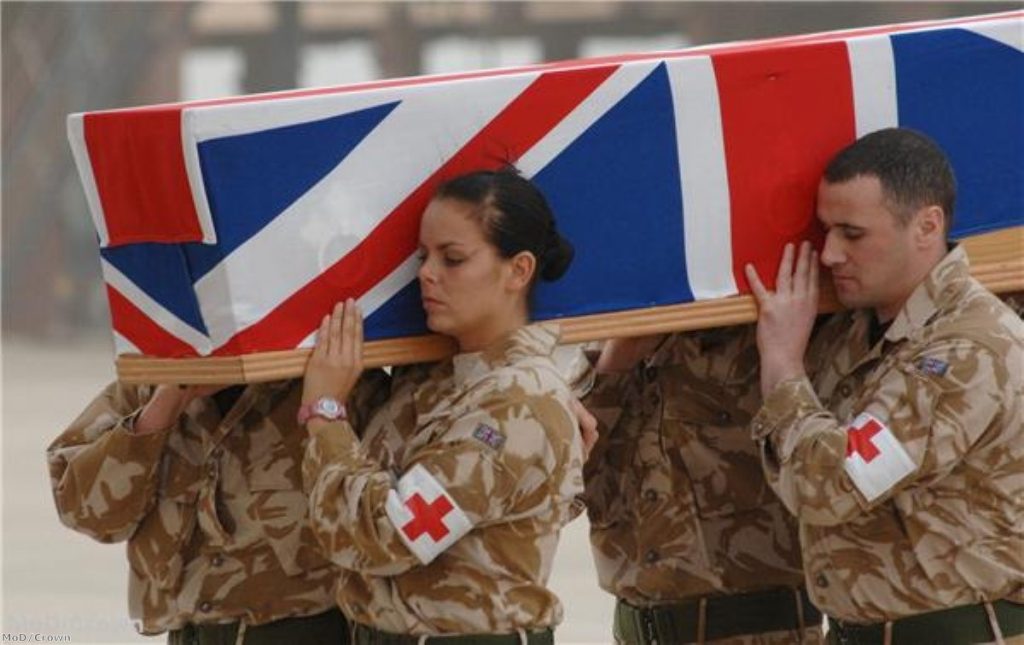Coroner reform clash looms after talks break down
Ministry of Justice officials have reached a “stalemate” with campaigners over reform of the coronial system, politics.co.uk has learned.
Backroom talks over the government’s plans to abolish the chief coroner post have collapsed over the lack of funding for the post, which is set to be axed as part of David Cameron’s ‘bonfire of the quangos’.
The role was only set up as part of the Coroners and Justice Act 2009. Senior circuit judge Peter Thornton was appointed but never took up his duties.


That has angered campaign groups who believe having a chief coroner is essential to driving through wider reforms of the coronial system.
Analysis: Bereaved families pay the price for spending cuts
Independent crossbencher Ilora Finlay, who tabled the amendment on the issue which inflicted the biggest defeat on the coalition government in the Lords last December, said she is now prepared to force further divisions.
“The only way that standards will get driven up over time is by having somebody who is in it for the long haul,” she told politics.co.uk.
“It’s the old problem – it’s about having an organisation with a memory. Ministers come and go, governments come and go.”
The MoJ had initially estimated setting up the chief coroner would cost £10 million, with an additional £6.5 million recurring cost every year.
Baroness Finlay suggested the job could be done for just £285,000. She claimed the MoJ subsequently reduced their £6.5 million estimate down to just £2 million, but officials have denied this is the case.
Ministers – and campaign groups like Inquest – would prefer to see it done on a full-time basis rather than just part-time, however.
“We are not saying there has to be a massive great office,” Baroness Finlay insisted.
“This could be one person in the judiciary who is given the ongoing responsibility.”
She called the government’s position “schizophrenic” in that officials recognise a chief coroner would have a lot of work to do, but are refusing to provide the required funding.
‘National leadership’ through an appeals system and a medical adviser were scrapped alongside the chief coroner post.
The MoJ said it remained the government’s intention to improve the coroner system so that inquests are timely and bereaved people are provided with sufficient information and support throughout the process.
“In the current economic climate the MoJ feels significant improvements to the coroners system can be made without the expense of setting up a new post of chief coroner,” a spokesperson said.
“Discussions have been taking place with the senior judiciary as to the most appropriate body to take on individual functions.”
The most recent update on the government’s planned reforms came in October 2010, when justice minister Jonathan Djanogly told MPs that coroners rules will be revised and updated, best practice guidance will be issued and operational problems faced by coroners will be addressed.
Inquest called the government’s discussion paper on a revised charter for all “completely inadequate”.
It stated: “The government’s proposals for coronial reform are no more than tweaks of a system that is in need of fundamental root and branch reform.”
Inquest has argued for the government to amend the Coroners and Justice Act 2009 to enable a transfer of selected powers to other judicial bodies without needing to abolish the chief coroner post.
“Inquest has asked the government to clarify the legal basis on which they assert it is necessary to abolish the chief coroner’s post in order to transfer the functions of the office to an alternative body,” it stated. “No answer has yet been received.”












